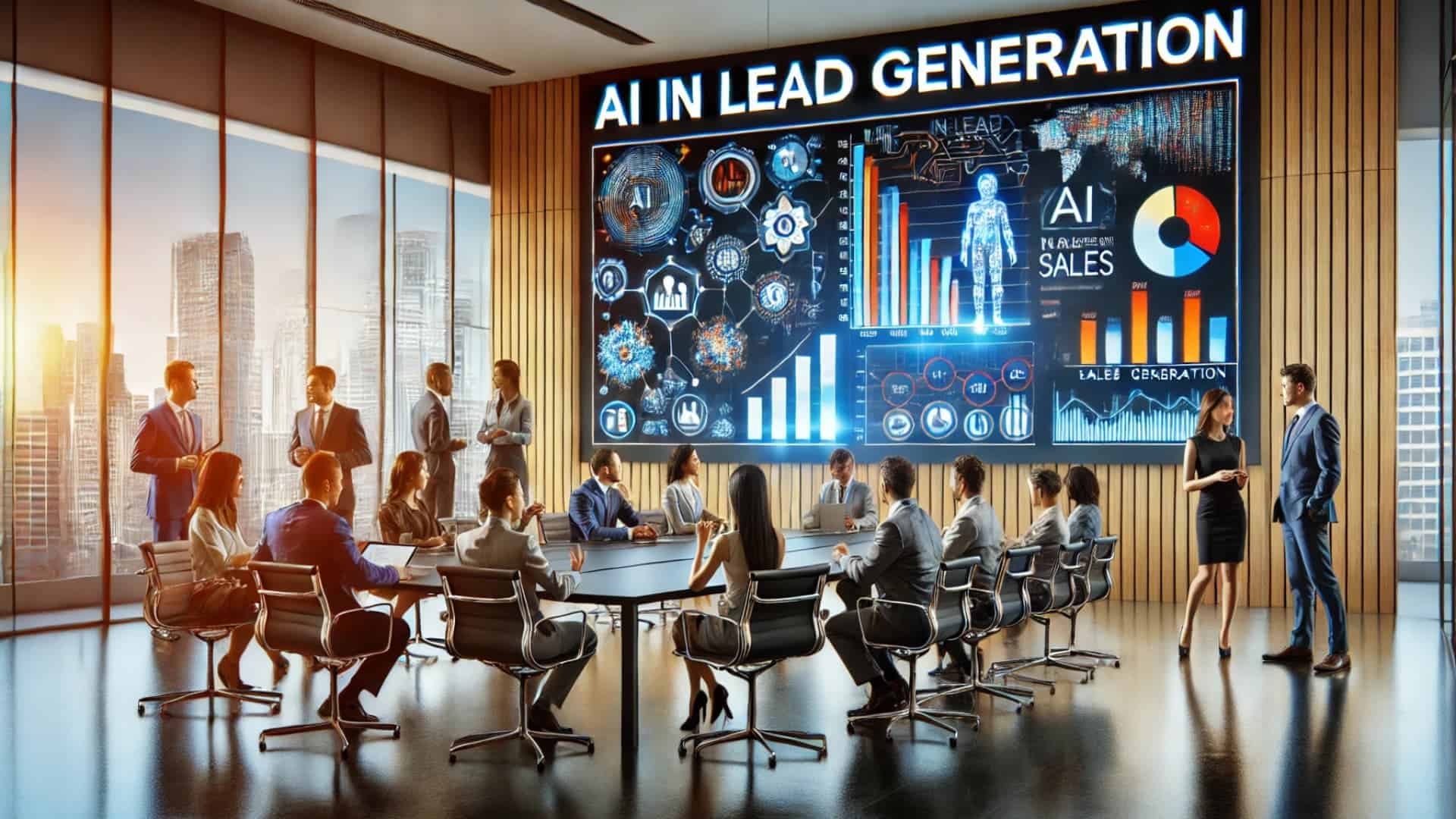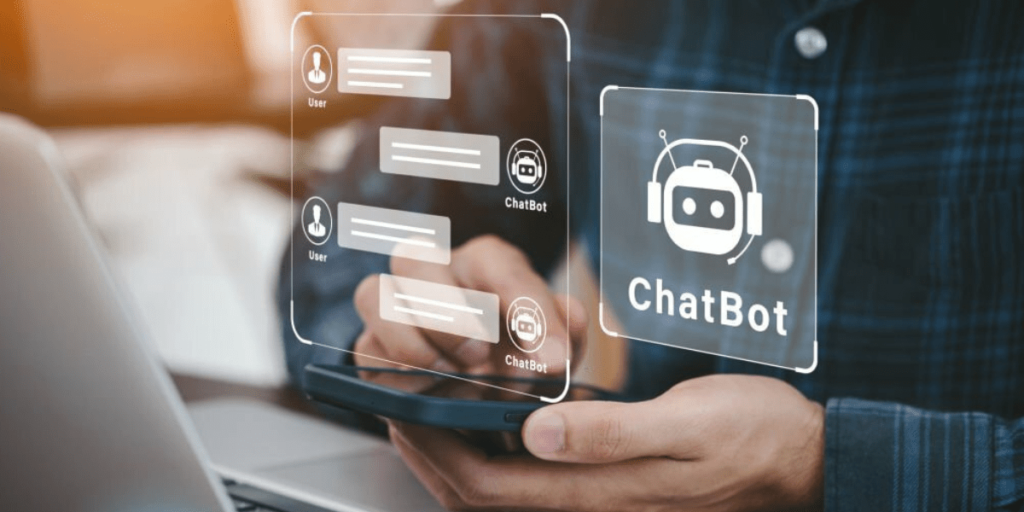Artificial Intelligence (AI) is rapidly transforming how B2B companies identify, attract, and convert potential customers. What was once a labor-intensive and often unpredictable process is now increasingly automated, intelligent, and results-driven. AI’s ability to analyze large volumes of data, identify patterns, and make predictions with speed and accuracy makes it an invaluable tool in the lead generation process.
For businesses navigating competitive markets, the integration of AI into lead generation strategies means not only saving time but also unlocking new levels of efficiency and effectiveness. From predictive analytics to personalized customer experiences, AI is setting a new standard in B2B marketing and sales.
The Shift from Traditional to AI-Driven Lead Generation
Traditional B2B lead generation methods often involve cold calling, email outreach based on purchased lists, and attending industry events. While some of these tactics still have their place, they are often time-consuming, resource-intensive, and not always accurate in targeting high-potential leads.
AI changes the game by automating these efforts and introducing predictive capabilities. Instead of relying on guesswork, businesses can now use AI to analyze historical data and customer behaviors to find leads who are more likely to convert. This means sales and marketing teams can focus their time and efforts on qualified opportunities.
How AI Enhances Lead Scoring and Qualification
One of the biggest challenges in B2B lead generation is qualifying leads. AI improves this process significantly through intelligent lead scoring. Using algorithms, AI evaluates a lead’s readiness to buy based on various data points—company size, industry, online behavior, engagement history, and even social media activity.
This results in a lead scoring system that prioritizes prospects most likely to make a purchase. AI doesn’t just rely on predefined criteria—it continuously learns and adjusts scoring models as more data becomes available. This dynamic approach makes lead qualification more accurate and allows sales teams to move faster and smarter.

Predictive Analytics for Smarter Targeting
AI-powered predictive analytics tools use data from various sources to forecast which companies are likely to need your product or service. These tools identify patterns and trends that human analysts might overlook. For example, if a company has recently hired new staff, secured funding, or launched a new product, AI can flag it as a high-potential lead.
This foresight allows marketers to target prospects proactively, even before they start searching for solutions. As a result, businesses can reach out at the right time with the right message—significantly increasing the chances of engagement.
Personalized Outreach at Scale
Another powerful benefit of AI in B2B lead generation is the ability to personalize communication at scale. Traditional personalization efforts often require manual customization, which limits scalability. AI automates this process by generating tailored emails, messages, and content based on a lead’s industry, pain points, or past interactions.
AI can even recommend the best time to send emails, the most effective subject lines, and the type of content that is most likely to resonate with a particular audience. These hyper-personalized messages lead to higher engagement rates and better conversions without the added workload.
Chatbots and Conversational AI
Chatbots and conversational AI tools have become an essential part of the B2B lead generation process. These tools engage with website visitors in real-time, answer questions, and gather information. More advanced bots can even qualify leads by asking a series of questions and then route them to the appropriate sales rep or resource.
The ability to have 24/7 interaction means businesses don’t miss out on potential leads who visit their site outside of regular business hours. Moreover, by handling routine inquiries, chatbots free up human agents to focus on high-value conversations and sales closing.
Content Recommendation Engines
AI is also behind the smart content recommendation engines that power many B2B websites. By analyzing user behavior and preferences, these systems suggest relevant blog posts, case studies, webinars, and product pages that align with the visitor’s interests.
This keeps potential leads engaged longer and helps guide them through the buyer’s journey in a more intuitive and helpful way. The more a visitor interacts with tailored content, the more insights AI collects, further refining the personalization loop.
Account-Based Marketing Powered by AI
Account-Based Marketing (ABM) is a highly targeted strategy where marketing and sales teams collaborate to engage high-value accounts. AI enhances ABM by identifying ideal customer profiles and analyzing data to find similar accounts that match those profiles.
It can monitor signals from multiple channels—news alerts, website visits, social media updates—and notify teams when a target account shows signs of interest. This real-time intelligence allows for timely and relevant outreach, which increases the likelihood of success in ABM campaigns.
CRM and Marketing Automation Integration
Modern CRM and marketing automation platforms increasingly incorporate AI to improve lead generation workflows. AI can recommend the next best action for each lead, segment contacts more intelligently, and even automate complex workflows based on behavioral triggers.
When AI is integrated with CRM tools, it creates a unified system where lead data is constantly being updated, scored, and acted upon. This reduces manual errors and ensures that leads are nurtured with precision.
AI and Data Privacy Considerations
As AI becomes more involved in handling user data, businesses must remain vigilant about data privacy and compliance. Ensuring that lead generation activities align with regulations like GDPR or CCPA is critical. Transparency in how AI tools collect and use data not only protects your brand legally but also builds trust with prospects.
It’s essential to use ethical AI practices—avoiding intrusive or manipulative techniques—and ensuring that data is securely stored and processed.
Challenges in Adopting AI for Lead Generation
Despite its many benefits, implementing AI in lead generation is not without challenges. There’s a learning curve involved, and it may require investment in new tools and training. Small businesses, in particular, might face budget constraints or struggle to interpret the data effectively.
It’s also important to remember that AI is a tool—not a magic bullet. Human judgment is still essential in crafting strategy, understanding context, and building genuine relationships. The most effective approach combines AI’s capabilities with human creativity and empathy.
The Future of AI in B2B Lead Generation
AI is still evolving, and its applications in B2B marketing will continue to expand. We can expect more predictive features, better natural language understanding, and deeper integration across platforms. As data becomes even more central to business decision-making, AI’s role in interpreting and acting on that data will become indispensable.
Businesses that invest in AI today are not just improving their current lead generation processes—they are future-proofing their marketing strategies for a more competitive landscape.
Conclusion
AI is redefining the way B2B companies generate leads, from identifying the right prospects to nurturing them with personalized content and timely outreach. By leveraging AI, businesses can create smarter, faster, and more efficient lead generation systems that deliver better results with less effort.
While it requires thoughtful implementation and ongoing management, the rewards are significant. Those who embrace AI as a strategic partner in their lead generation journey will not only see higher conversion rates but also gain a stronger competitive edge in the digital marketplace.
















